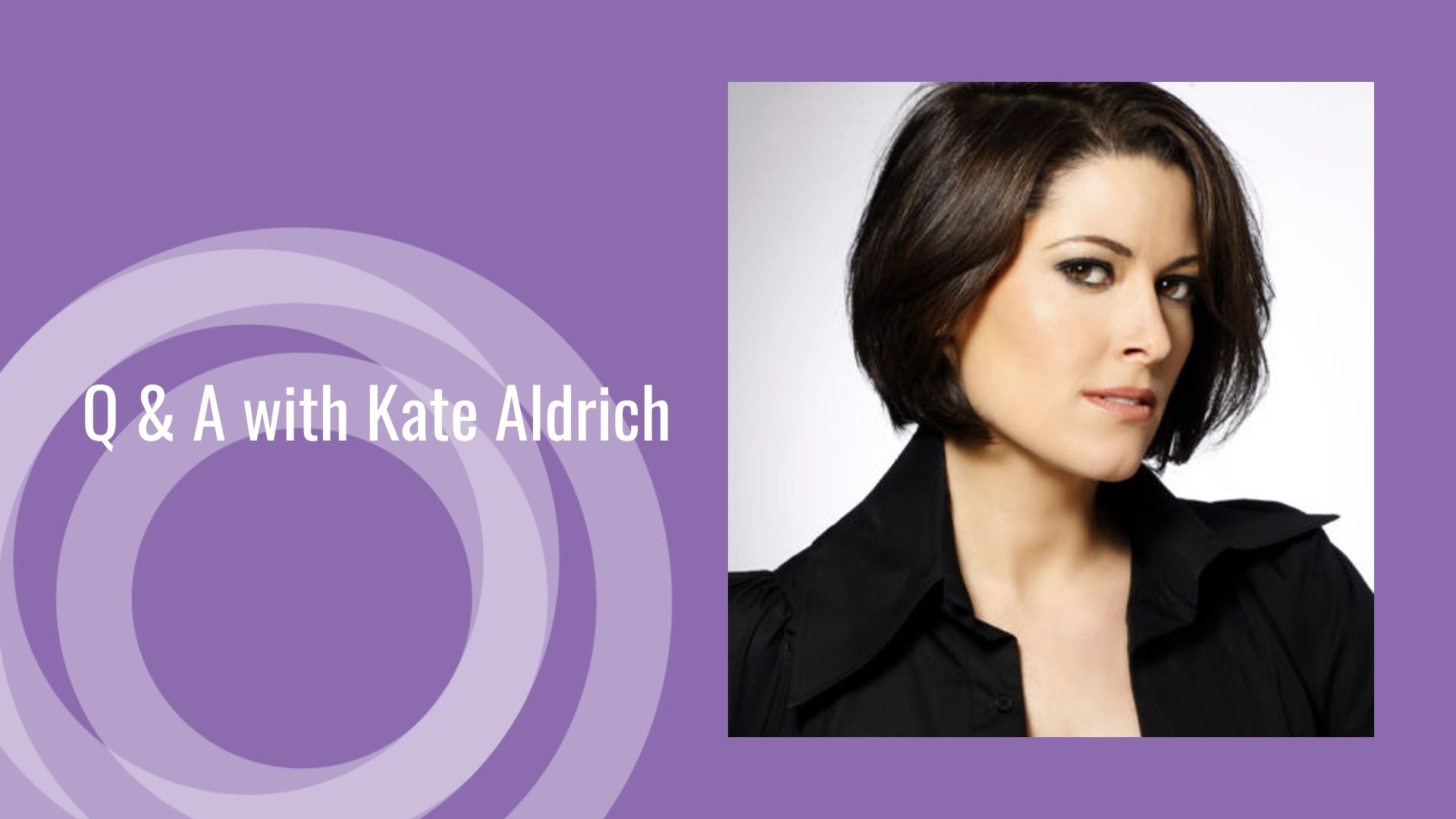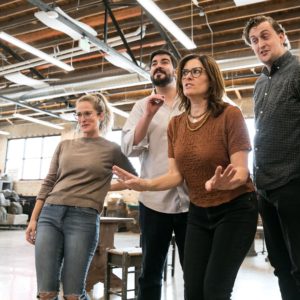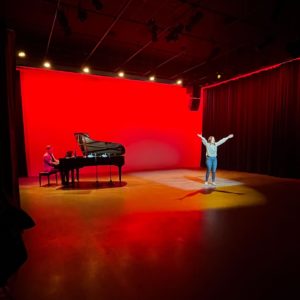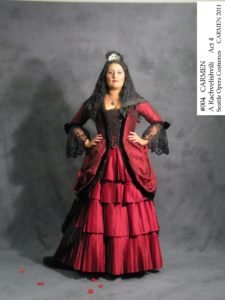Q & A with Kate Aldrich

By: Suzanne Whitney
Bizet’s smoldering drama is an opera focused on the life, desires, and lovers of one woman: Carmen. She is a heroine unlike any other—sultry, mercurial, and forever free. It takes a special artist to embody Carmen’s true spirit, but American mezzo-soprano Kate Aldrich is up to the challenge. Having tackled this coveted role everywhere from Berlin to the Met, she brings a deep knowledge of the role and an admirable commitment to collaborating with each cast member to create a “new Carmen” for every production.
She knows who she is. I feel like she’s an early feminist. Carmen doesn’t exist to please men or really anybody.
Carmen is an iconic character and one you’ve performed several times. Who is she to you?

She is very, very independent. There is no way to get around that. She knows who she is. I feel like she’s an early feminist. Carmen doesn’t exist to please men or really anybody, but incidentally, she does please men, and so she uses that to get what she needs.
I also think she’s fatalistic. She has a belief in fate and what the cards say, so to speak. She wants her life to be totally within her control, but in a way, destiny is the only thing stronger than her will.
But Carmen’s character always depends on the production. One thing I never want to say is, well, my Carmen is this or my Carmen is that. It’s easy to fall into that sort of thing because we feel defensive of the way we view the character as a result of the way we’ve presented it, but it’s a living, breathing process to create the character. Of course, I have definite ideas about her, but it’s less about “my Carmen.” Carmen really lives within the context of the other actors in the production and within the production itself.
Learn more about the plot of Carmen before you head to the opera house.>>
Tell us about the rehearsal process and how you develop your character.
Oh, I love rehearsing. In fact, I’m always kind of sad when rehearsals end. I’m, of course, excited to perform and share it with the audience, but the actual process of rehearsal is so fun, especially when you have a great cast and a great artistic team. There’s almost no end to what you can add to an opera or an aria. In rehearsal, you just find new colors and elements and dimensions. It’s fun to see that come to life, especially when you have people who are constantly digging and finding something new. Then I carry those discoveries forward the next time I perform Carmen.
Do you have a favorite moment in Carmen?

Well, it’s the second act, really. It is like a big party until Don José comes in and ruins everything! But, no, I think there is some sort of magic that happens from the time Don José sings the flower aria until the time Carmen sings the card aria in act three. The flower and the cards are the two symbols of her destiny. The flower brings the two of them together, and the cards tell her how she’s going to die. So those two bracketed moments feel like one long breath, even though there is an intermission in the middle. It shows her “aha moment.” Realizing, of course, this is how it was supposed to go. And that’s why I threw the rose. And that’s why I waited for him. And that’s why he came back. And that’s why maybe this is love.
Then, the act four duet is so satisfying. I think it’s cathartic. Not for me as a person, but as me playing Carmen. We’ve built this whole production together where she dances around what she needs and expects people to keep up with her. By the time we reach act four, she just says, “I was born free, and I’ll die.” Carmen stands up and says, “this is who I am, and I am not going with you.” Even though, at a certain point, I think she knows this is it. This is the moment the cards were leading towards.
Carmen has been beloved for more than 100 years. Why should audiences keep coming back?

Opera is just this complete art form—it has visual art, music, dance, and theater in one production. It just transcends everything else. I think modern audiences shy away from opera saying, “Well, I don’t know about it, so I shouldn’t go. It’s not a place for me.” Well, we artists and people backstage at the opera, we love when people come to the opera for the first time. It’s thrilling for us. I love hearing all about their first experience, and more often than not, people have positive experiences.
I’ve found this is especially true for children. When, in the past, I’ve performed for students, they were completely enthralled. If we could all find and listen to our inner child, we would be far more open to experiencing new things.
If you loved getting to know Kate Aldrich in this post, you will love seeing her perform live and in person! Tickets for Opera Colorado’s May production of Bizet’s Carmen are on sale now>>
—
What else would you like to know about Kate and her process? Who is your favorite Carmen of all time? Which parts of Carmen are you most looking forward to?



Favorite Carmen: Grace Bumbry. Of recent Carmens: Elena Garancia (sp?)
Favorite parts: the children’s marching music, La Habanera, La Seguidilla (sp?) Le Toreador, Dancing at the beginning of Act II. All of it, really.